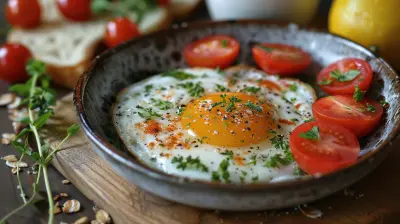The Link Between Mental Health and Bone Health
10 June 2025
Have you ever thought about how your mind and bones are secretly best friends? It’s true! While we often focus on mental health as it relates to emotions and bone health in terms of physical strength, the two are actually intertwined in ways you wouldn’t believe.
Many people assume that keeping bones strong only requires calcium and exercise. But what if I told you that your mental state plays a significant role in your bone health too? Let’s dive into this amazing mind-body connection and understand why taking care of your mental well-being is just as important as eating that extra serving of dairy. 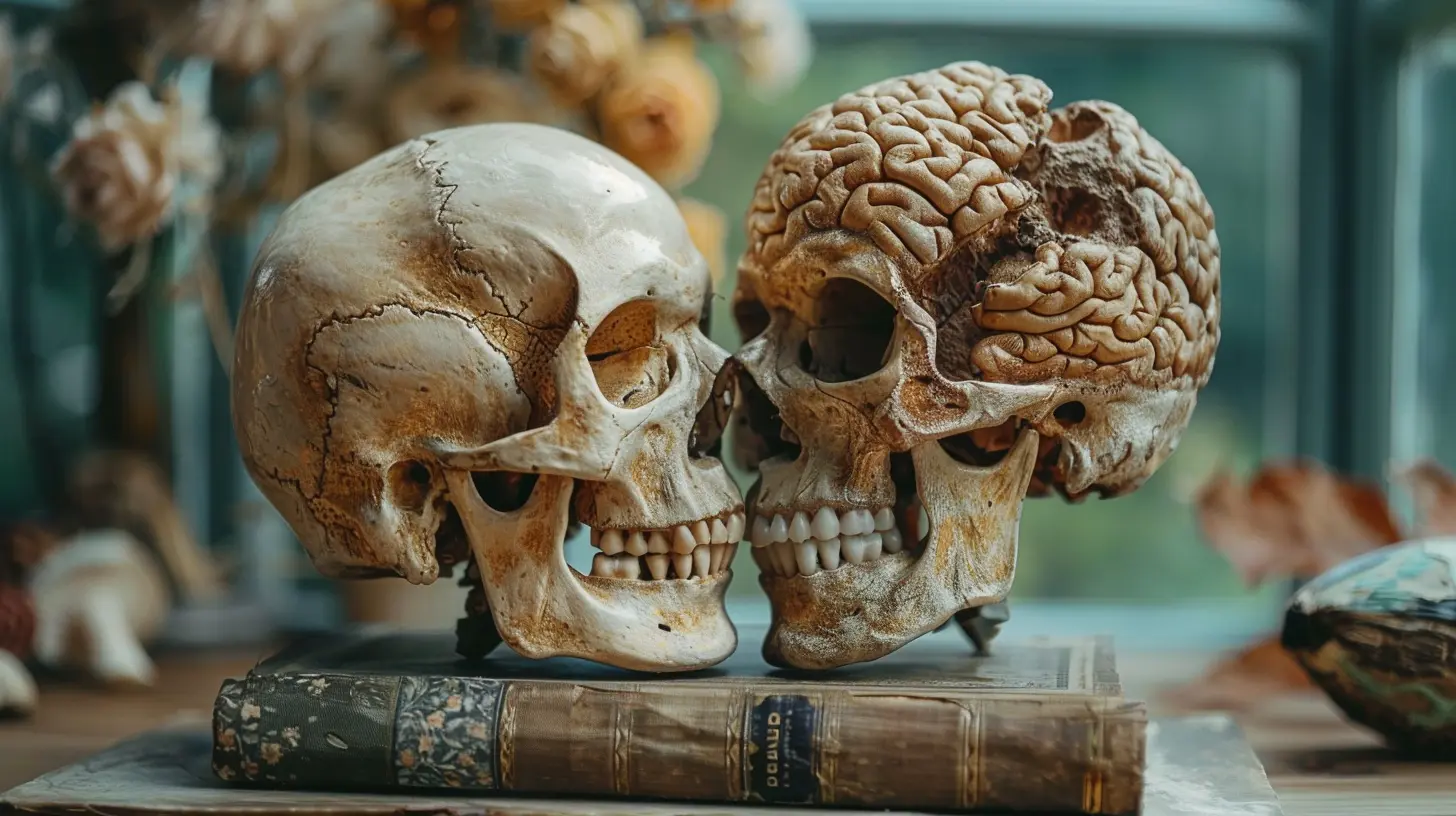
How Mental Health Affects Bone Health
1. Stress and Bone Weakness: The Silent Culprit
Ever noticed how your body tightens up when you’re stressed? That isn’t just in your muscles – stress also impacts your bones. When you’re constantly dealing with stress, your body produces more cortisol, commonly known as the "stress hormone." While cortisol is useful in short bursts, too much of it can weaken your bones over time.High levels of cortisol interfere with bone formation and increase bone breakdown, making your bones more fragile. Long-term stress is like a slow leak in your car tire. You might not notice it right away, but over time, it weakens the whole structure.
2. Depression and Bone Density Loss
Depression doesn’t just weigh on your mind; it physically affects your body too. Studies have shown that people who struggle with depression often have lower bone mineral density. This means that their bones are less dense and more prone to fractures.But why does this happen? Depression is often linked to low levels of serotonin – the "feel-good" neurotransmitter. Interestingly, serotonin also plays a role in bone metabolism. When serotonin levels drop, bone formation slows down, putting you at risk for osteoporosis.
3. Anxiety and Its Impact on Bone Health
Anxiety might make your heart race and palms sweat, but it also quietly affects your bones. Chronic anxiety is often associated with poor nutrition, lack of physical activity, and disrupted sleep – all of which contribute to poor bone health.People experiencing high anxiety levels might skip meals, rely on unhealthy comfort foods, or avoid important nutrients like calcium and vitamin D. They may also avoid weight-bearing exercises, which are crucial for maintaining strong bones. Over time, these habits compromise bone strength, making them easier to break. 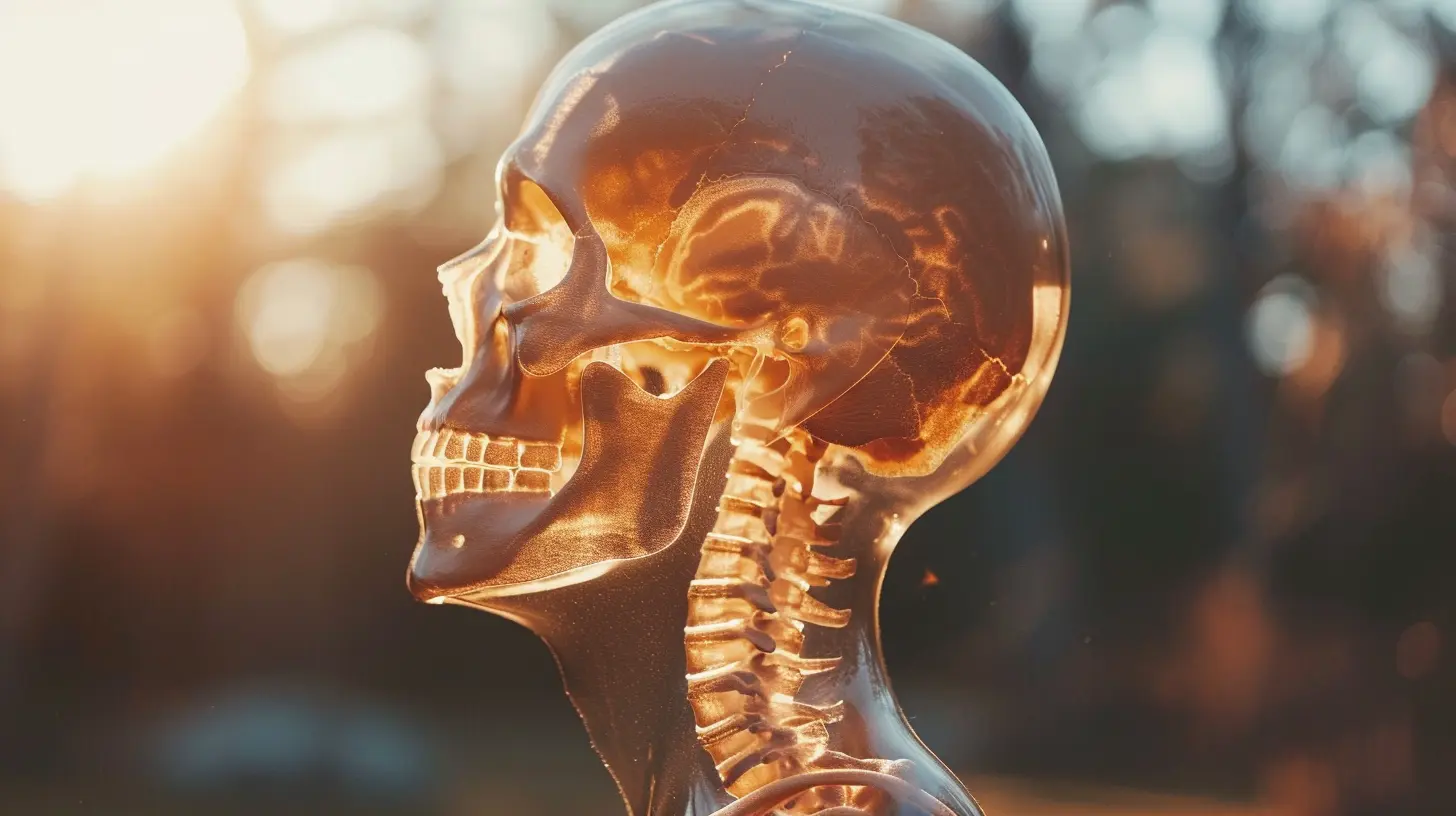
The Role of Lifestyle in the Mind-Bone Connection
1. Emotional Well-Being and Proper Nutrition
Your diet affects both your mental and bone health. A lack of essential nutrients like calcium, vitamin D, and magnesium weakens your bones and negatively impacts brain function. On the flip side, a well-balanced diet loaded with whole foods, leafy greens, and healthy fats can boost your mood and strengthen your skeleton.Omega-3 fatty acids (found in fish, flaxseeds, and walnuts) have been shown to reduce symptoms of depression and support bone formation. Likewise, vitamin D – known as the "sunshine vitamin" – is critical for absorbing calcium and has been linked to improved mood and mental clarity.
2. Exercise: A Natural Booster for Both Mind and Bones
If there’s one magic pill for both mental health and bone health, it’s exercise. Engaging in physical activity releases endorphins – the happy hormones – while also stimulating bone growth.Weight-bearing exercises such as walking, jogging, and dancing encourage bone strength by increasing bone density. At the same time, activities like yoga and tai chi help reduce stress and anxiety, making them the perfect addition to your wellness routine.
The best part? You don’t need to spend hours in the gym. Just 30 minutes a day of moderate exercise can work wonders for your mental and skeletal well-being.
3. Sleep: The Overlooked Factor
How well do you sleep? If your answer is "not great," it’s time to fix that. Lack of sleep doesn’t just make you groggy; it also negatively impacts your bones. During deep sleep, your body goes into repair mode, producing new bone tissues.Chronic sleep deprivation increases inflammation, elevates stress hormones, and reduces bone formation. So, if your Netflix binge is cutting into precious sleep hours, it might be time to rethink your late-night habits. 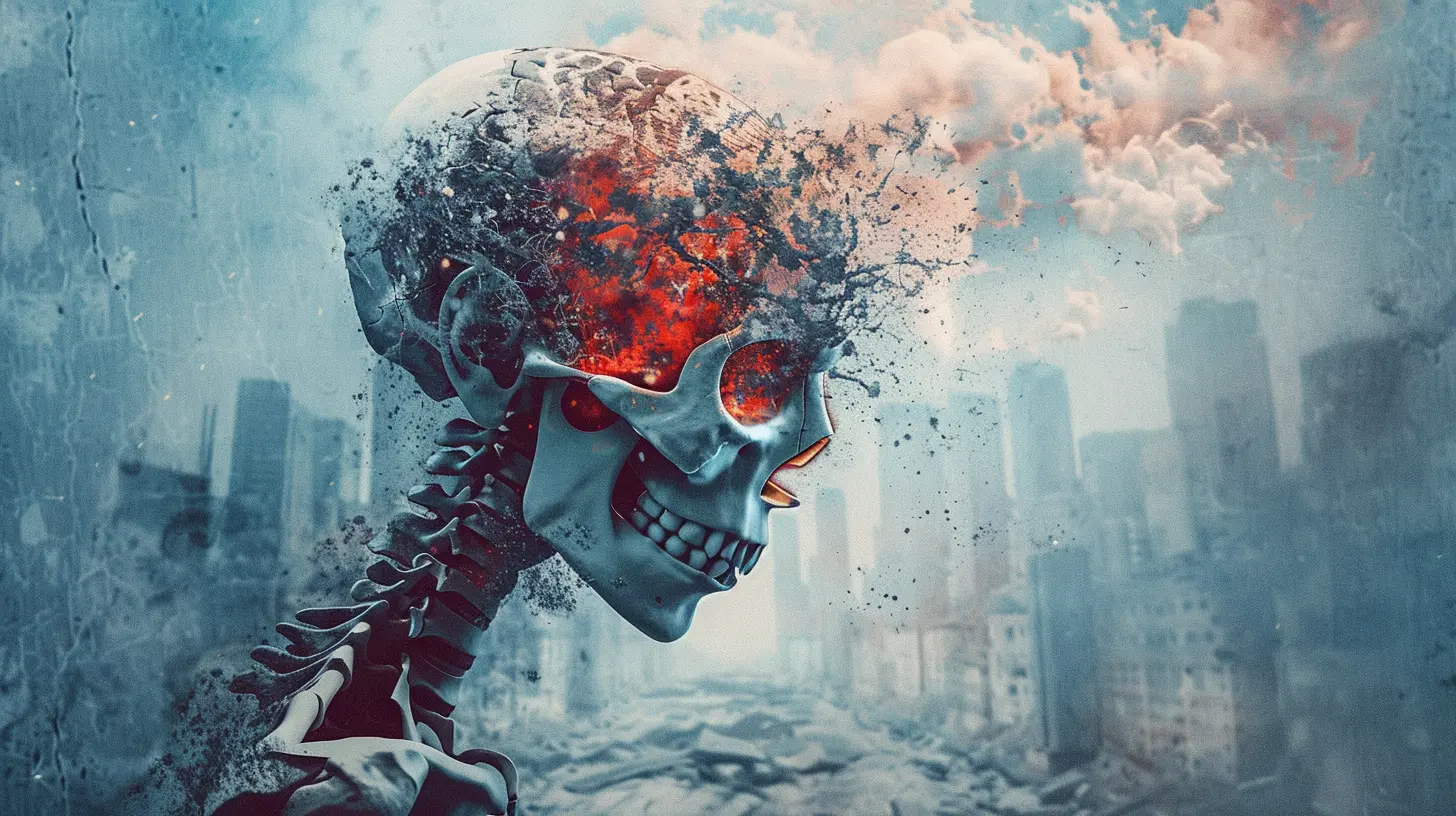
Tips to Improve Mental and Bone Health Together
Now that we know the strong connection between mental health and bone health, let’s talk solutions! Here are some easy ways to improve both at the same time:1. Adopt a Calcium-Rich Diet with Mood-Boosting Foods
- Eat dairy products, leafy greens, nuts, and seeds for bone strength.- Include mood-enhancing foods like bananas, dark chocolate, and salmon.
2. Get Moving and Stay Active
- Do weight-bearing exercises like walking or dancing to strengthen bones.- Try yoga or meditation to lower stress and improve mental well-being.
3. Manage Stress Effectively
- Practice mindfulness and deep breathing exercises.- Engage in hobbies that make you happy.
4. Prioritize Good Sleep Habits
- Aim for 7-9 hours of quality sleep per night.- Create a bedtime routine to help you relax before getting into bed.
5. Seek Support When Needed
- Don’t hesitate to talk to a therapist or counselor if you’re struggling.- Surround yourself with positive and supportive people.
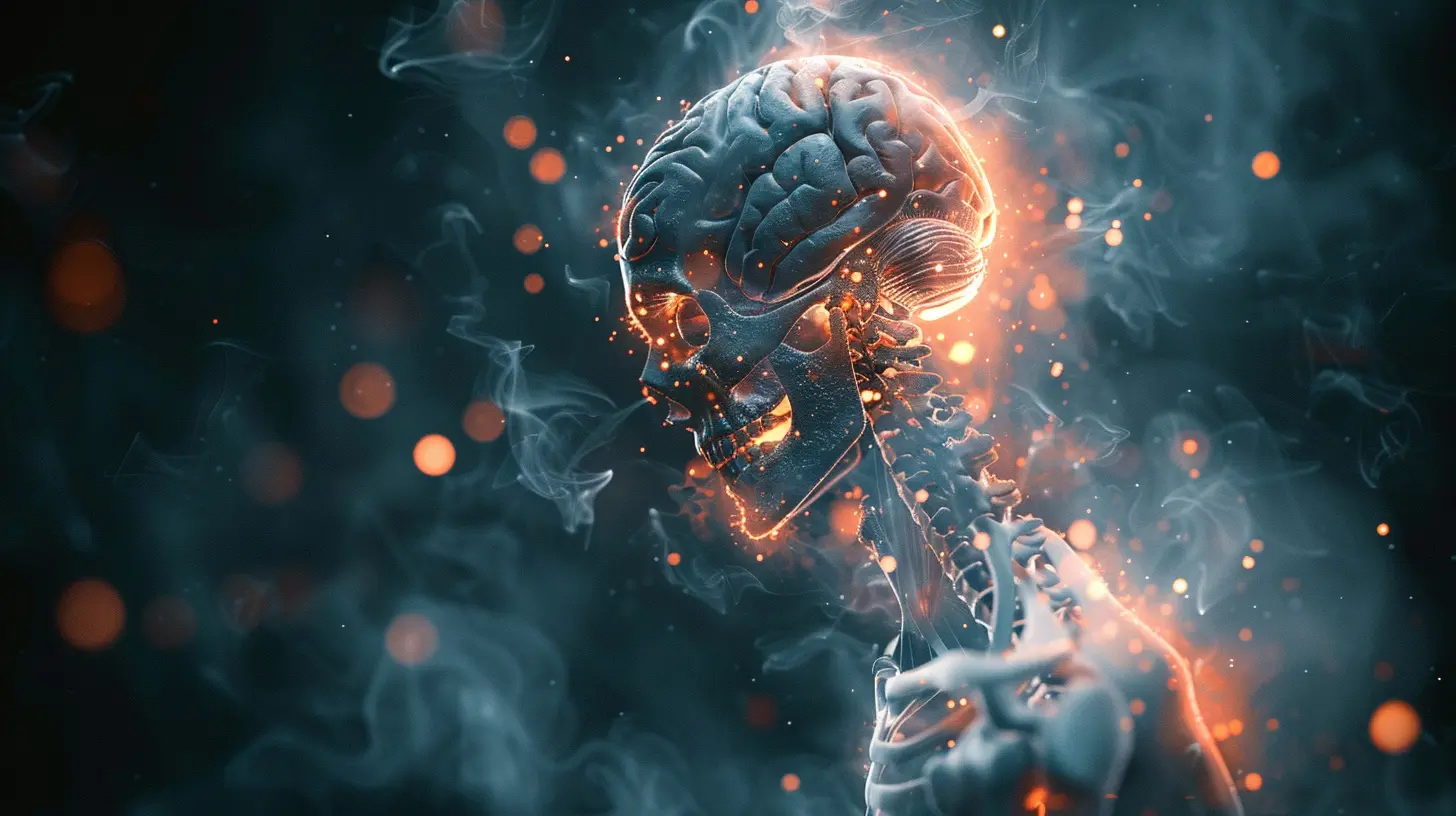
Final Thoughts
Your mental health and bone health work together like peanut butter and jelly – you can’t have one without the other! When you take care of your mind, your bones benefit, and vice versa. So, instead of just focusing on one aspect of health, why not embrace a more holistic approach?By managing stress, staying active, eating well, and getting enough sleep, you’ll not only feel happier but also build a stronger, healthier body. And remember – self-care isn’t selfish; it’s essential. Your future self (and your bones) will thank you!
all images in this post were generated using AI tools
Category:
Healthy BonesAuthor:

Laura Hudson
Discussion
rate this article
3 comments
Ryder Wade
Fascinating connection! I wonder how improving mental health might enhance bone strength.
June 22, 2025 at 2:30 AM

Laura Hudson
Thank you! Mental health can influence behaviors like physical activity and nutrition, which are crucial for bone health. Improved mental well-being may lead to better lifestyle choices that support stronger bones.
Landon McLaughlin
Fascinating connection! It's intriguing how mental health impacts physical well-being, like bone health. More research needed!
June 16, 2025 at 4:13 PM

Laura Hudson
Thank you for your insightful comment! I completely agree—understanding the connection between mental and physical health is crucial, and ongoing research will shed more light on this important topic.
Vaughn McCaffrey
Prioritizing mental health strengthens our bones and overall well-being—let’s support both for a vibrant life!
June 13, 2025 at 4:41 AM

Laura Hudson
Thank you for highlighting this important connection! Prioritizing mental health is indeed vital for our overall well-being, including bone health. Let’s continue to support both for a healthier life!

